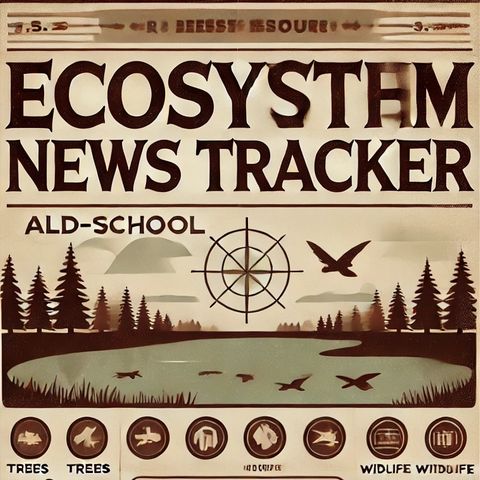Coral Reef Veterinarians Battle Devastating Disease to Safeguard Coastal Communities

Sign up for free
Listen to this episode and many more. Enjoy the best podcasts on Spreaker!
Download and listen anywhere
Download your favorite episodes and enjoy them, wherever you are! Sign up or log in now to access offline listening.
Coral Reef Veterinarians Battle Devastating Disease to Safeguard Coastal Communities
This is an automatically generated transcript. Please note that complete accuracy is not guaranteed.
Description
Coral reefs, often dubbed the "rainforests of the sea," provide critical protection against hurricanes for coastal communities by acting as natural barriers that absorb wave energy and reduce coastal erosion....
show moreBiologists are meticulously studying stony coral tissue disease by peering through microscopes at tiny polyps and algal cells, seeking to understand how this disease infiltrates and devastates coral colonies. The stakes are incredibly high, as the impacts of the disease extend far beyond the microscopic level. When coral reefs deteriorate, their ability to protect coastlines from the destructive force of hurricanes diminishes, leaving coastal communities increasingly vulnerable.
Stony coral tissue disease was first identified in 2014 and has since spread rapidly through the reefs of the Caribbean and Florida. The disease is characterized by the rapid loss of tissue from the coral skeleton, leading to the death of entire colonies within weeks or months. This swift and destructive spread has prompted an urgent response from researchers, who are racing against time to develop effective treatments and mitigation strategies.
Among these efforts, biologists are deploying innovative techniques to halt the progression of the disease. One approach involves the application of antibiotics directly onto affected corals to combat the bacterial pathogens believed to be responsible. In addition, researchers are experimenting with probiotics that could bolster the corals' natural defenses, much like how probiotics help improve human gut health. The success of these treatments could have profound implications for the future of coral reefs and the communities that depend on them.
The protection of coral reefs is not just an environmental issue but also an economic one. Healthy reefs support fisheries, tourism, and recreation industries, all of which contribute significantly to the livelihoods of millions of people globally. Furthermore, coral reefs provide habitat for a vast array of marine life, making them crucial for biodiversity conservation.
The battle against stony coral tissue disease is a race against time, with climate change and other human-induced stressors exacerbating the vulnerability of coral reefs. Increased ocean temperatures and acidification weaken corals' resilience, making them more susceptible to diseases and less capable of recovering from damage.
In this high-stakes scenario, the role of coral reef veterinarians becomes indispensable. Their work not only aims to cure the diseased corals but also to restore the reefs' ability to shield coastal communities from the ever-growing threat of hurricanes. By protecting and revitalizing coral reefs, these biologists are on the front lines of both environmental conservation and disaster prevention.
The plight of the coral reefs underscores the interconnectedness of natural systems and human society. The health of these underwater ecosystems directly influences the safety, economy, and well-being of coastal populations. As such, efforts to protect and restore coral reefs represent an investment in the resilience and sustainability of both natural and human communities.
In conclusion, the fight against stony coral tissue disease highlights the critical importance of coral reefs in protecting coastal areas from hurricanes and other natural disasters. By assuming the role of coral reef veterinarians, USGS biologists are pioneering new frontiers in marine science and conservation. Their work is vital in preserving these essential ecosystems, ensuring that coral reefs continue to serve as natural shields against the forces of nature while supporting marine biodiversity and human livelihoods.
Information
| Author | QP-4 |
| Organization | William Corbin |
| Website | - |
| Tags |
Copyright 2024 - Spreaker Inc. an iHeartMedia Company
